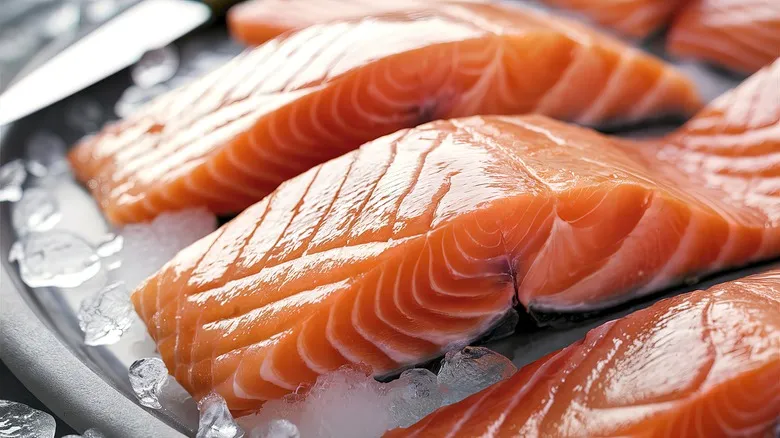Ways to freeze fish without a vacuum sealer

If you don't own a vacuum sealer, there's no need to fret; you can still freeze fish and keep it fresh for several months. One effective method for freezing fresh fish without a vacuum sealer is glazing. This technique involves submerging the fish in cold water and then freezing it to form a layer of ice. You repeat this process several times until a crust about 1/4 inch thick forms. Once glazed, the fish can be stored in a freezer bag for up to six months.
Another option is to place the fish in a freezer bag filled with salted water, ensuring the fish is completely submerged. When frozen, the water acts as a protective barrier, similar to glazing, allowing the fish to remain good for three months.
Lastly, you can preserve fresh fish by wrapping it tightly. The key is to cover the fish as snugly as possible with plastic wrap to shield it from oxygen before placing it in a freezer-safe bag. However, this method is the least effective and may not prevent freezer burn. If you choose this approach, it's advisable to use the fish sooner rather than later to maintain its quality.
It's important to note that fatty fish, such as salmon, trout, and whitefish, tend to deteriorate more quickly due to oxidation, which can cause the fat to go rancid. Therefore, minimizing oxygen exposure when freezing fatty fish will help prolong its freshness. Just remember to avoid common mistakes when cooking fish to make the most of your frozen fillets!
Recommended

The Unexpected Pepper That Gives Pizza A Pop Of Vibrant Flavor

4 Easy Substitutes For Mushrooms In A Recipe

5 Expert Tips For Making The Ultimate Homemade Kimchi

The Trader Joe's Chip That's Perfect For Pairing With Cheese Boards
Next up





